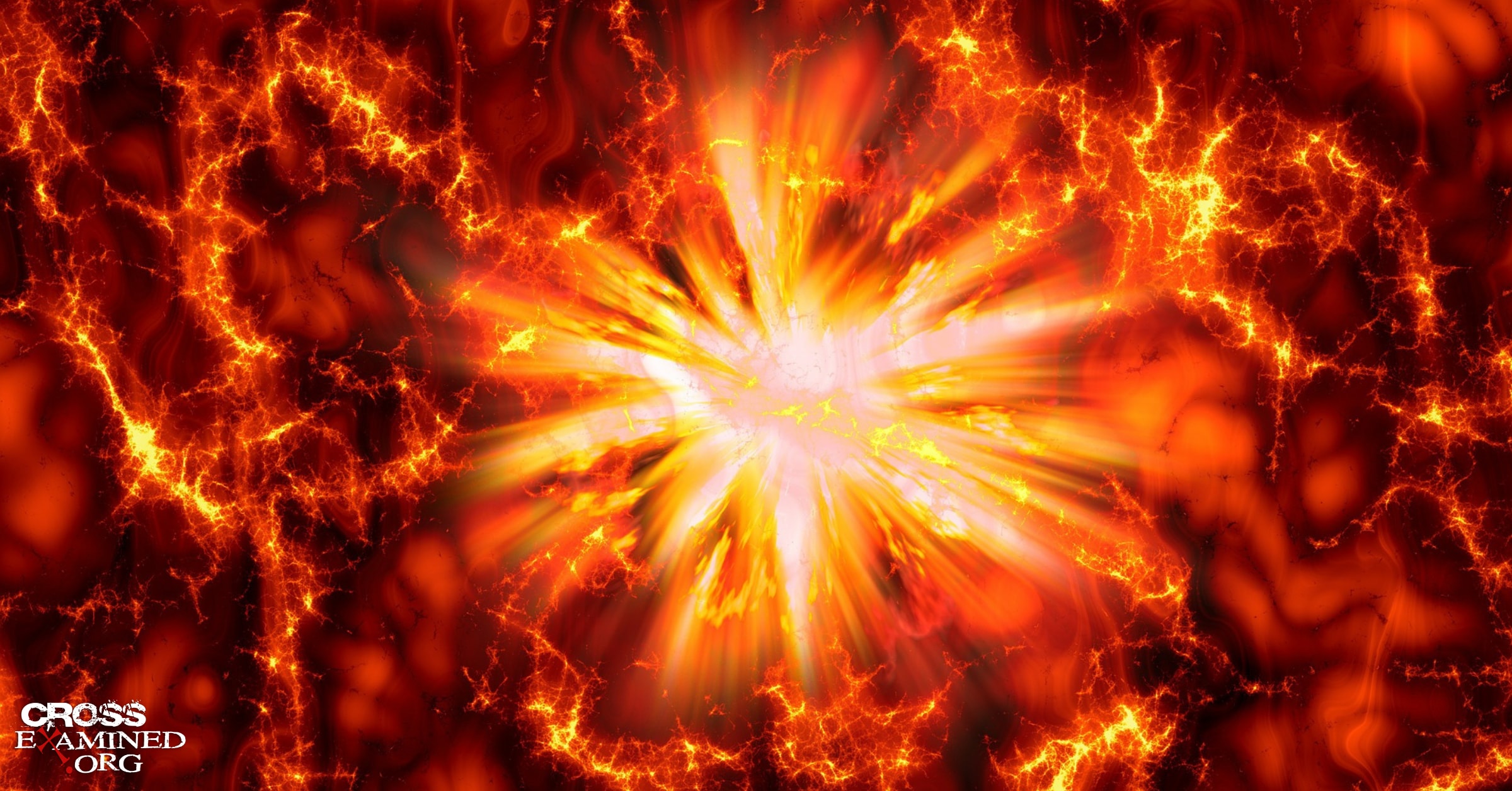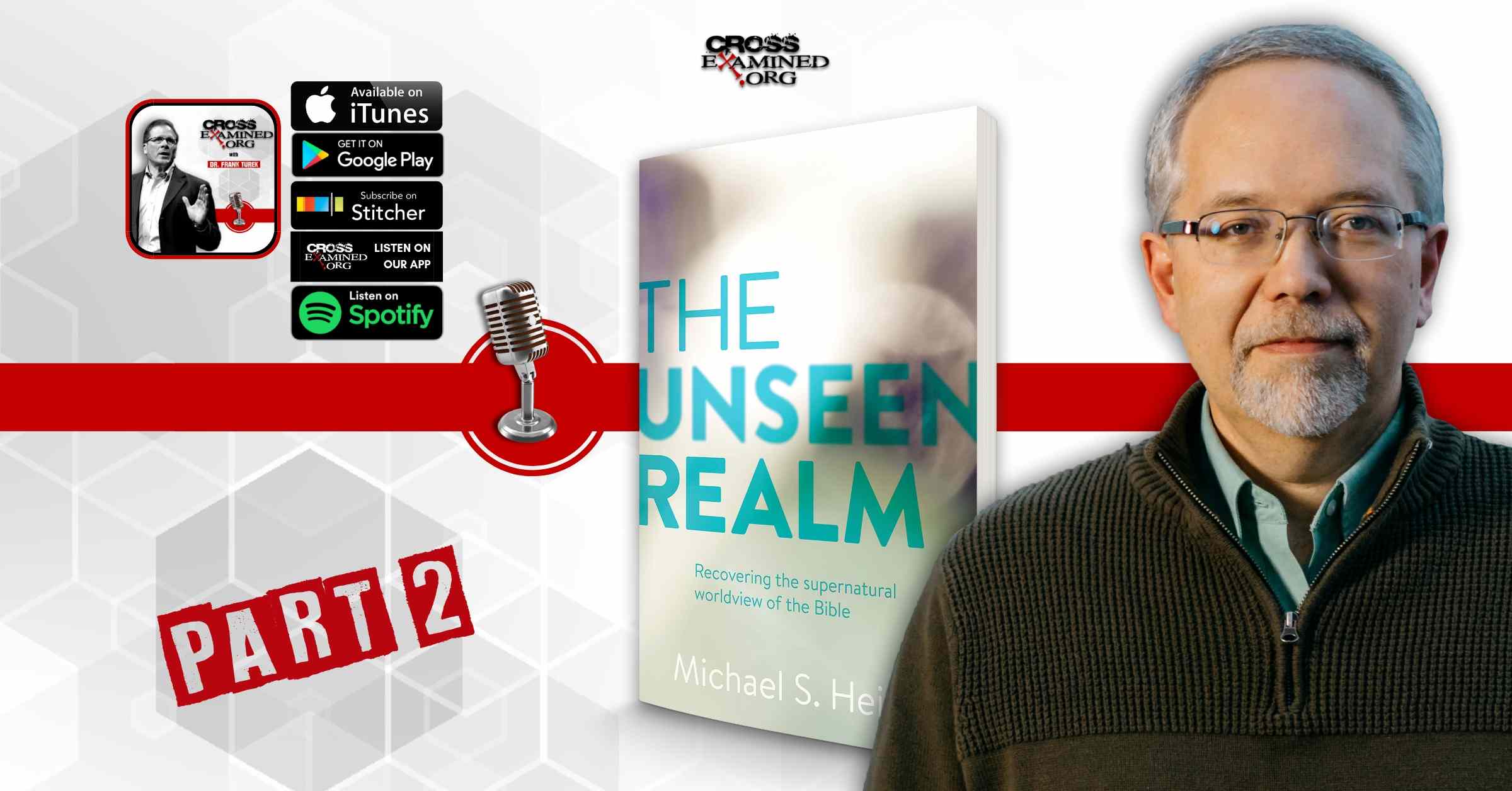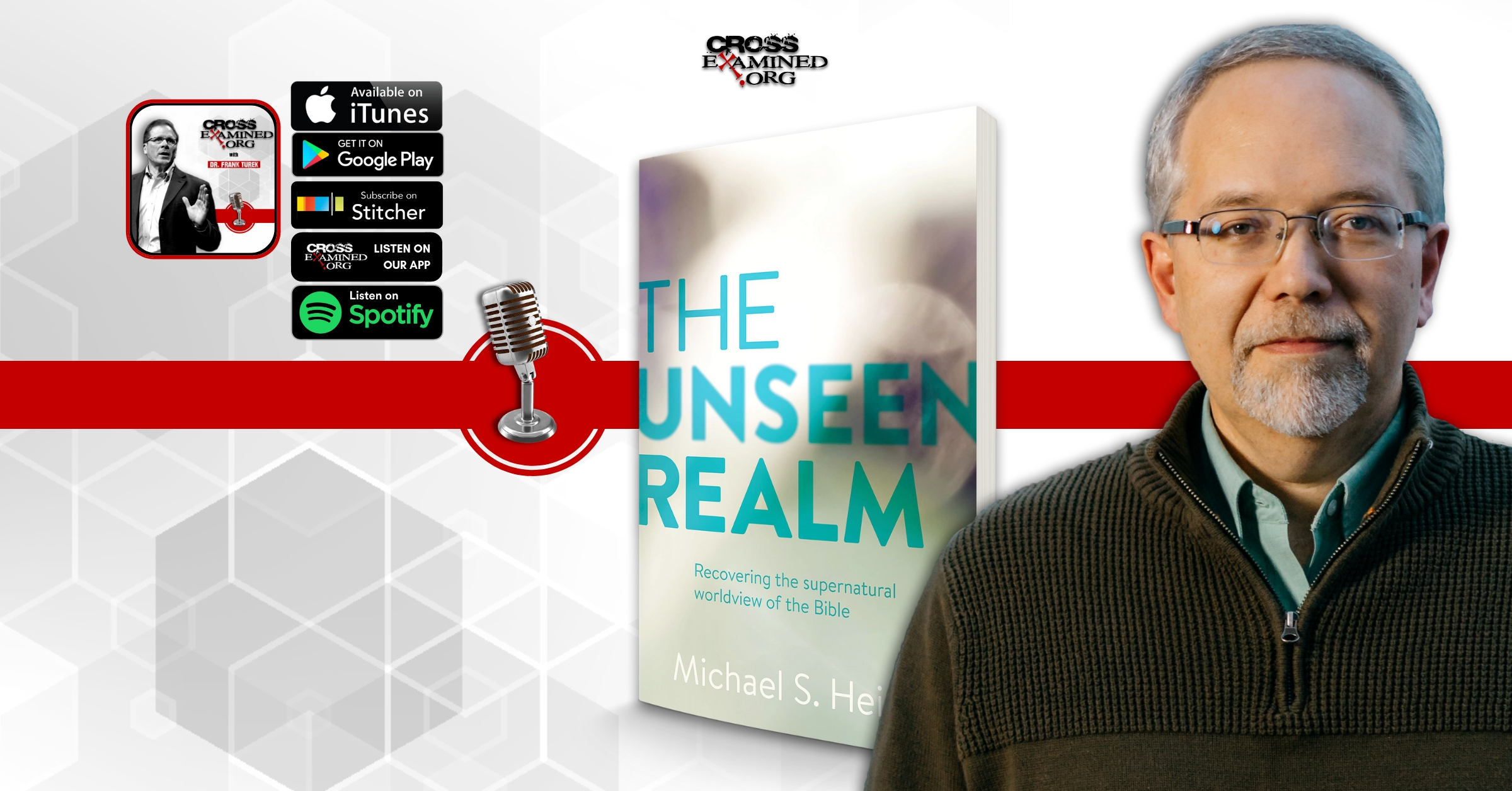The Kalam Cosmological Argument NOT Debunked
I discovered a YouTuber called “Rationality Rules” very recently. One of his many videos is “The Kalam Cosmological Argument Debunked – (First Cause Argument Refuted)” which you can watch here. One of my patrons brought this video to my attention and requested that I respond to it, so here we go.
For the uninitiated, The Kalam Cosmological Argument is formulated as follows:
1: Whatever begins to exist has a cause.
2: The universe began to exist.
3: Therefore, the universe has a cause.
Let’s look at each of Rationality Rules’ rebuttals.
Objection 1: The Argument Doesn’t Support Theism
Rationality Rules (RR) says “Even if the Cosmological Argument were accepted in its entirely, all it would prove is that there was a cause of the universe, and that’s it. It doesn’t even suggest, let alone prove that this cause was a being, and it certainly doesn’t suggest that that cause was a being that is eternal, omnipotent, omniscient, omnibenevolent, personal and moral. That is one hell of a leap. Hence, even if accepted, the argument doesn’t even remotely support theism.”
I really couldn’t believe what I was hearing. Has RR even paid the slightest bit attention to apologists’ defenses of The Cosmological Argument? This is patently false. Given that everything that has a beginning has something that caused it to come into being, and since Big Bang cosmology, the second law of thermodynamics, and the two arguments against actual infinites establish that the universe came into being out of nothing a finite time ago, it follows that a cause transcendent to matter, energy, space, and time must have caused matter, energy, space, and time (i.e the universe) to come into existence. Now, granted, the syllogism doesn’t define this cause as “God”. It only asserts “Therefore, the universe has a cause”. However, in every defense of The Kalam Cosmological Argument I’ve ever heard given, this is not where the argument stops. Once it is established that the universe a transcendent cause, the apologist (William Lane Craig, Frank Turek, Lee Strobel, Myself) do a conceptual analysis of what it means to be a cause of the universe. The conceptual analysis part of the argument is being totally ignored by RR.
When you do a conceptual analysis of what attributes or properties the universe’s cause must have, you do indeed end up with a being heavily resembling God.
The cause must be
Spaceless – Because space came into being and did not exist until this cause brought it into existence, the cause cannot be a spatial being. It must be spaceless or non-spatial. You cannot be inside of something if you are that something’s cause. You cannot be inside of something if that something did not exist until you brought it into existence.
Timeless – Since time did not exist until The Big Bang, the cause cannot be inside of time. It must be a timeless being.
Immaterial – The cause’s non-spatiality entails immateriality. How so? Because material objects cannot exist unless space exists. Material objects have mass and ergo occupy spatial dimensions. If there is no space, matter cannot exist. This means that because the cause is non-spatial, it is therefore non-material.
Unimaginably Powerful (if not omnipotent) – Anything able to create all matter, energy, space, and time out of absolutely nothing must be extremely powerful, if not omnipotent.
Supernatural – “Nature” and “The universe” are synonyms. Nature did not begin to exist until The Big Bang. Therefore, a natural cause (a cause coming, by definition, from nature) cannot be responsible for the origin of nature. To say otherwise would be to spout incoherence. You’d basically be saying “Nature caused nature to come into being.”
Uncaused – Given that the cause of the universe is timeless, the cause cannot itself have a beginning. To have a beginning to one’s existence entails a before and after relationship. There’s a time before one existed and a time after one came into existence. But a before and after of anything is impossible without time. Since the cause existed sans time, the cause, therefore, cannot have a beginning. It’s beginningless.
Personal – This is an entailment of the cause’s immateriality. There are two types of things recognized by philosophers that are immaterial: abstract objects (such as numbers, sets, or other mathematical entities) or unembodied minds. Philosophers realize that abstract objects if they exist, they exist as non-physical entities. However, abstract objects cannot produce any effects. That’s part of what it means to be abstract. The number 3 isn’t going to be producing any effects anytime soon. Given that abstract objects are causally impotent, it, therefore, follows that an unembodied mind is the cause of the universe’ beginning. Two other arguments for the personhood of the universe’s cause can be given, and I’ve unpacked these in my book The Case For The One True God: A Scientific, Philosophical, and Historical Case For The God Of Christianity available on Amazon.com in both paperback and Kindle.
Whatever begins to exist has a cause, given that the universe began to exist, if follows that the universe has a cause of its existence. The cause of the universe must be a spaceless, timeless, immaterial, powerful, supernatural, uncaused, personal Creator.
This being that is demonstrated to exist by this argument is consistent with The Christian God. The Bible describes God as spaceless (see 1 Kings 8:27, 2 Chronicles 2:6), timeless (1 Corinthians 2:7, 2 Timothy 1:9, Titus 1:2), immaterial (John 4:24, 1 Timothy 1:17, 1 Timothy 6:16), powerful (Psalm 62:11-12, Job 9:14, Matthew 19:26), uncaused (Psalm 90:2, Isaiah 57:15, 1 Timothy 1:17, Revelation 1:8), supernatural, and is a personal being (John 1:12, James 4:8). Moreover, The Bible credits Him with being the Creator of all physical reality (John 1:1-3).
Additionally, as I point out in my book The Case For The One True God: A Scientific, Philosophical, and Historical Case For The God Of Christianity a study of comparative religions demonstrates that only 4 religions are consistent with the Cosmological argument’s conclusion: Judaism, Christianity, Islam (that’s why Ghazali defended it), and Deism. All other religions involve either an eternal cosmos that have God or gods bringing order out of the eternally existing matter, energy, space and time, or else their god is the universe itself (pantheism). Therefore, if you’re picking a view about God based on the cosmological argument alone, your list of options consistent with the evidence is limited to just 4 options, Christianity being among them. Only the Abrahamic religions (and Deism) teach that a God like the one described above brought all physical reality into existence from nothing.
Rationality Rules complains that the argument doesn’t demonstrate the omniscience, omnipresence, or the moral character of the universe’s cause, but the argument was never designed to get those qualities. Richard Dawkins made this same complaint about the argument. Dawkins said it like this “Even if we allow the dubious luxury of arbitrarily conjuring up a terminator to an infinite regress and giving it a name, there is absolutely no reason to endow that terminator with any of the properties normally ascribed to God: omnipotence, omniscience, goodness, creativity of design, to say nothing of such human attributes as listening to prayers, forgiving sins and reading innermost thoughts.”[1] and Dr. William Lane Craig responded to it thusly:
“Apart from the opening slur, this is an amazingly concessionary statement! Dawkins doesn’t dispute that the argument successfully proves the existence of an uncaused, beginningless, changeless, timeless, spaceless, and unimaginably powerful personal Creator of the universe. He merely complains that this cause hasn’t also been shown to be omnipotent, omniscient, good, creative of design, listening to prayers, forgiving sins, and reading innermost thoughts. So what? The argument isn’t intended to prove those things. It would be a bizarre form of atheism, indeed an atheism not worth the name, which admitted that there exists an uncaused, beginningless, changeless, timeless, immaterial, spaceless, unimaginably powerful, personal Creator of the universe who may (for all we know) also possess the properties listed by Dawkins. So we needn’t call the personal Creator of the universe “God” if Dawkins finds this unhelpful or misleading. But the point remains that such a being as described by this argument must exist”[2]
This is just a pitiful objection to The Kalam Cosmological Argument.
Objection 2: It Doesn’t Prove The Universe’s Cause Was The First Cause.
I facepalmed even harder at this objection than I did the previous one. Rationality Rules said “A second problem that even we accepted the argument. It wouldn’t prove that the universe itself was without a cause. Or in another words, it wouldn’t prove that first cause existed, which for a first cause argument is pretty damn ridiculous. To be fair, the proponents of this argument do indeed offer additional arguments in an attempt to assert that the cause of the universe must be without a cause. But the point that I’m trying to make here and now is that The Kalam Cosmological Argument, by itself, is pretty damn trivial. And hence, the proponents of this argument almost always employ additional arguments to reach their conclusions including the likes of Craig”
There are good reasons given as to why the cause of the universe must be uncaused. I’ve given one of them above. I wrote “Given that the cause of the universe is timeless, the cause cannot itself have a beginning. To have a beginning to one’s existence entails a before and after relationship. There’s a time before one existed and a time after one came into existence. But a before and after of anything is impossible without time. Since the cause existed sans time, the cause, therefore, cannot have a beginning. It’s beginningless.” Another reason is that if you do not allow for an uncreated Creator, if you insist that God must have a Creator, you get thrown into an infinite regression. For God to come into being, His creator must have come into being, and before that creator could come into being, the creator before him had to come into being, and before that creator could come into being, the creator before him had to come into being, and so on back into infinity. No creator could ever come into being because there would always have to be a creator before him to bring him into being. In fact, no creator in the entire infinite past series of creators could ever come into being because each would have to be preceded by a previously created creator. And since no creator could ever come into being, the specific creator that brought our universe into existence couldn’t have come into being. But obviously, here we are. This suggests that there wasn’t an infinite regression of creators begetting creators. But if there was no infinite regression of creators begetting creators, then that logically brings us to an uncreated Creator, a Creator without beginning.
Even Rationality Rules admits that Kalam proponents back up the assertion that the cause is uncaused by arguments, as you can see in the quotation above. However, he doesn’t dispute the arguments. He doesn’t even say what the arguments are. He seems to think that merely having to bolster the conclusion “the universe had a cause” with additional arguments is an invalid move. But why think a thing like that? Yes, the syllogism by itself only gets you to “The universe had a cause”, but why take Christian Apologists to task for unpacking the implications of that conclusion with additional arguments?
The question RR should be asking is not whether additional arguments are needed, but whether the additional arguments given are good. RR’s objection is pretty damn trivial.
Objection 3: It Commits The Fallacy Of Equivocation
Rationality Rules indicts The Kalam Cosmological Argument for committing the fallacy of equivocation. What is the fallacy of equivocation? The fallacy of equivocation is when an argument uses the exact same word, but employs two different definitions of the word. It would be like if someone argued “God made everything. Everything is made in China. Therefore, God is Chinese”. The word being equivocated on here is the word “everything”. In the first premise, it means literally everything that exists, whereas, in premise 2, it only refers to everything that American consumers purchase.
Rationality Rules says that in the second premise, what we mean by the term “Universe” is the scientific definition of universe (i.e all matter, energy, space, and time), whereas in the conclusion, we employ the colloquial usage of the term “Universe”, meaning literally everything that ever was, is, and ever will be. Thus, RR says that steps 2 and 3 of the argument employ the same words with different meanings.
This objection is just as underwhelming as the previous two. For one thing, why isn’t “all matter, energy, space, and time) not synonymous with “everything that ever was, is, or will be”? Perhaps RR is assuming The Mother Universe theory whereby The Big Bang was not the absolute origin of all material objects, but only the birth of one of many “baby” universes” that come into being inside of a much wider Mother Universe. In that case, the origin of our universe would indeed not be “everything that ever was, is, or will be”.
But as I argue in my blog posts “Does The Multi-Verse Explain Away The Need For A Creator?” and “Is The Universe A Computer Simulation?” not to mention chapter 1 of The Case For The One True God, this Mother Multiverse scenario cannot be extended into past eternity. The Borde-Guth-Velinken Theorem, as well as the impossibility of traversing actual infinites, bring us to an absolute beginning of literally everything at some point, whether that be the beginning of our universe, The Mother Universe, The Grandmother Universe, or whatever.
This leads to my next point; we do mean literally everything in both steps 2 and 3. We mean all matter, energy, space, and time that ever was, is or will be in both steps 2 and 3. Now, RR can dispute whether premise 2 is true, but if I, William Lane Craig, Lee Strobel, Frank Turek, Hugh Ross, etc. mean literally everything in both steps, then a charge of the fallacy of equivocation cannot stand. We mean the same thing by “universe” in both steps 2 and 3.
Objection 4: Nothing Has Ever Been Demonstrated To Come Into Being From Nothing
RR says “And this brings us comfortably to another critical flaw with the Kalam Cosmological Argument. It asserts that something can indeed come from nothing – a concept in philosophy known as Creatio Ex Nihilo (creation out of nothing), when this has never been demonstrated to occur. In fact, to the contrary, everything we know about cause and effect overwhelmingly and unanimously tells us that when a new thing is created it is due to the rearrangement of energy and matter that already existed… that is, everything is the result of Creatio Ex Materia (creation out of material).”
Another underwhelming objection. Before I give my response, let me inform my readers that I distinguish causes via Aristotelian Causation. The ancient philosopher Aristotle recognized that there are different types of causes. A “material cause” is the stuff out of which something is made. For example, a chair’s material cause is the wood gathered from chopped down trees. An efficient cause of the chair would be the carpenter who fashioned the chair from the wood. Another type of cause Aristotle identified was Final Causality. This is the teleology, the purpose or end goal of bringing something into being. In the example of the chair, the final cause would be the purpose of sitting. But for this discussion, only efficient and material causes need to be distinguished.
The objection here is that the inductive evidence is overwhelmingly against the idea that things can come into being without a material cause. The conclusion of The Kalam Cosmological Argument is that the universe came into being via an efficient cause (God), but with no material cause. God didn’t use previously existing material to manufacture the universe.
Now, I would agree that our experience shows us that whenever something comes into being, it had a material cause as well as an efficient cause, thus rendering us with as much inductive evidence for material causation, but this inductive evidence can be overridden if we have powerful evidence that all physical reality came into being out of nothing a finite time ago. The Big Bang demonstrates just that. To look at the evidence, see my blog posts “The Kalam Cosmological Argument” and “Is The Big Bang The Origin Of The Universe?”
As I explain in the above blog posts, we do in fact have powerful scientific evidence as well as philosophical arguments which show us that the whole of physical reality (space, time, matter, and energy) had an absolute beginning.
Objection 5: Special Pleading Fallacy
RR says that Kalam proponents commit the special pleading fallacy. What is that? The Special Pleading Fallacy occurs whenever you make an exception to an established rule without justification. RR says “they [Kalam proponents] assert that the cause of the universe didn’t begin to exist and therefore it didn’t have a cause, without adequately justifying why this cause is an exception.”
My face is hurting from all the facepalming I’ve been doing throughout watching this dude’s videos. First of all, there’s no exception to even be made! The argument is that “Whatever begins to exist has a cause.” The Kalam proponent would only be special pleading if he or she said that God began to exist, but made him the exception by saying he came into being uncaused. However, all proponents of The Kalam Cosmological Argument hold that (A) God is uncaused, uncreated. And (B) we give arguments for that. I’ve given arguments for that above.
Objection 6: Argument From Ignorance
Of course. The overused “God Of The Gaps” objection. This is not based on what we don’t know. It’s based on what we do know. As I explained in subheader 1, the cause of the universe must be spaceless, timeless, immaterial, powerful, uncaused, and personal. And I didn’t just arbitrarily assign these attribute’s to the universe’s cause, I gave positive arguments for why the universe’s cause must have these attributes. I, nor has any proponent of this argument ever said, “Scientists can’t explain how the universe came into being, so it must be God” or anything of that sort. One must suppose that atheists continue to illegitimately accuse the Kalam of committing this fallacy because they just don’t pay attention when it is explained to them. If you keep falling asleep in class, it’s no surprise that you don’t know what you’re talking about when it’s time to do your essay.
As for being the specific God I believe in, I’d recommend a look at The Case For The One True God. I admit that The Kalam doesn’t get you to the uniquely Christian conception of God, but it does get you to a conception of God that doesn’t match the majority of the ones most religions out there. Abrahamic religions and Deism are consistent with this argument, but polytheistic, animistic, and pantheistic religions are not. And atheism certainly is not consistent with the argument’s conclusion.
Conclusion
When my patron Kevin Walker, asked me to make a response to this video, I was actually bracing myself for some pretty hard-hitting rebuttals, if not refutations. I was like “Boy, I hope I can handle these responses.” I never expected the pitiful, flimsy objections RR put forth.
Notes
[1] Richard Dawkins, “The God Delusion” p. 158.
[2] William Lane Craig, “Deconstructing New Atheist Objections To The Arguments For God,” https://www.reasonablefaith.org/videos/short-videos/deconstructing-new-atheist-objections-to-the-arguments-for-god/
Evan Minton is a Christian Apologist and blogger at Cerebral Faith (www.cerebralfaith.blogspot.com). He is the author of “Inference to The One True God” and “A Hellacious Doctrine.” He has engaged in several debates which can be viewed on Cerebral Faith’s “My Debates” section. Mr. Minton lives in South Carolina, USA.
Original Blog Source: http://bit.ly/2VrWpAg












Leave a Reply
Want to join the discussion?Feel free to contribute!